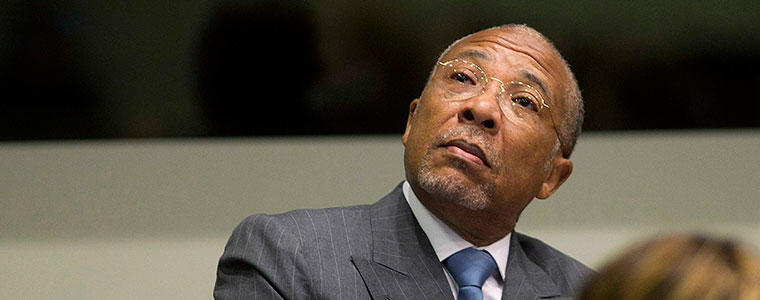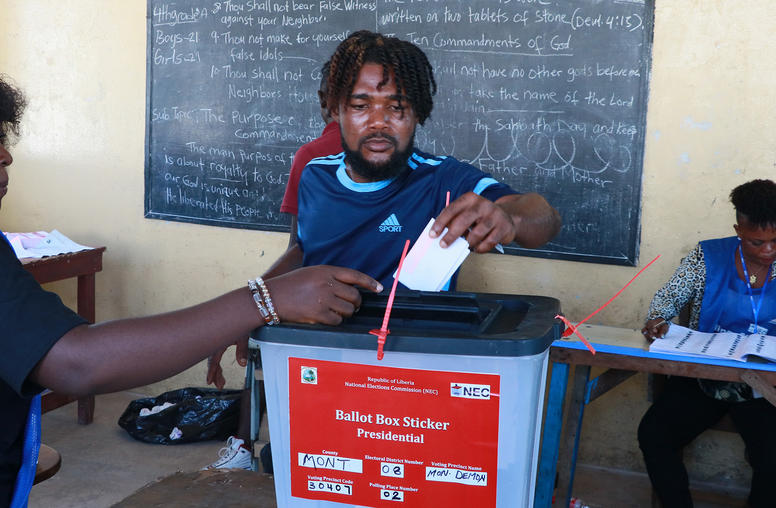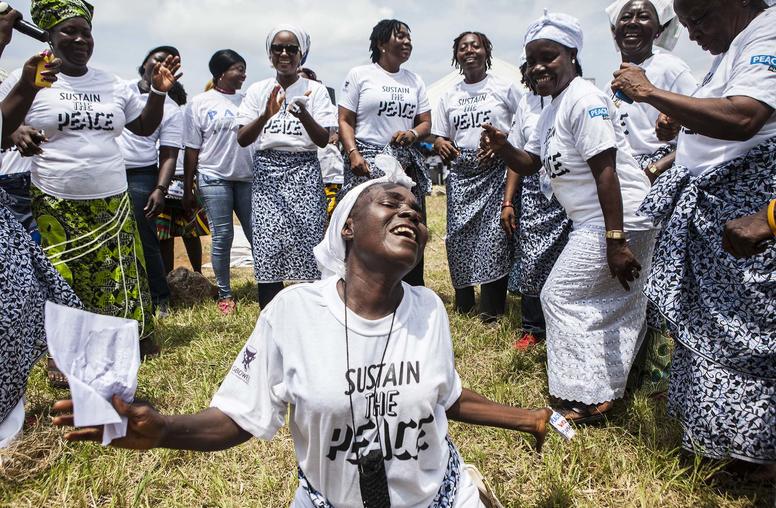
Upon learning of the Charles Taylor conviction for war crimes and crimes against humanity by the Special Tribunal, I had many mixed feelings and emotions.
On one hand, the verdict is victory for holding leaders accountable for atrocities that they orchestrate. In Taylor's case, the former president of Liberia had supported rebels who embarked on a violent and brutal struggle to overthrow the government in neighboring Sierra Leone. The rebels engaged in horrific crimes, including murder rape and slavery, as well as the kidnapping and conscription of children — forced to engage in violent warfare and unspeakable atrocities, aided through Taylor.
On the other hand, while the verdict and its impact on the present and future conduct of similarly inclined despots should certainly be celebrated — there remains a daunting list of open wounds and troubling issues that have yet to be addressed by the world community.
This includes holding accountable all the others involved in the atrocities, addressing the still lingering trauma, physical and emotional injuries and financial losses of Taylor's victims in Sierra Leone. And while the Special Tribunal's verdict addresses his involvement in the Sierra Leone conflict, it leaves those for which he was involved in his own country of Liberia unsettled.
Transitional Justice
So my mixed feelings open up the promise of what we call "transitional justice" or "TJ."
Very generally speaking, TJ is a process by which a country deals with past abuses during a conflict or under an authoritarian regime. TJ's goals are many: establish truth about what happened and why, acknowledge victims' suffering, hold perpetrators accountable, compensate for past wrongs, prevent future abuses and promote social healing and reconciliation.
There have been a variety of mechanism and techniques used in numerous post-conflict and post-authoritarian countries to try and accomplish these ambitious and challenging goals, including criminal prosecutions, truth commissions, reparations and compensation programs, vetting systems to remove abusive officials from public offices, reforming offending institutions (such as the military and police), building monuments and psycho-social programs to address traumatized individuals and societies.
Just last week I was at the Defense Institute of International Legal Studies (DIILS), at the U.S. Naval Station in Newport, Rhode Island, teaching as a guest instructor at their Laws of Armed Conflict and Human Rights course.
As I prepared my discussion on the laws of armed conflict for the military officers from around the globe, including officer's from Afghanistan, Armenia, Colombia, Mozambique, Yemen and Albania who were the course's participants, I found myself pouring over my Powerpoints and presentations, trying to organize them in a logical, technical and meaningful way.
And as I did so, I couldn't help but be stricken by the feeling I was a baker assembling a recipe for a cake. "Add a pinch of this. A sprinkle of that and go through all these steps and then "poof" everything will be fine."
But I know better than that.
One of the privileges and drawbacks and hardships of my position is that I travel to these same war-torn countries and meet and speak with the victims of these unspeakable atrocities. As I add their lessons to my Powerpoint, each of their faces and the pain and loss they express flashes through my mind— sometimes an unwelcome visual aid to the gravity and import of the lessons I will attempt to impart on the course's participants.
At the conclusion of my presentation, we watched the powerful and gripping documentary that USIP produced in association with York Zimmerman Inc., called "Confronting the Truth: Truth Commission and Societies in Transition."
Without exception, with every airing, at the documentary's ending, silence fills the room for minutes on end.
The heaviness of what we have just watched, from the victim's stories of horrific atrocities involving rape, torture, and brutality beyond comprehension, coupled with the realization that, even when equipped with all the powerful and proven transitional justice tools we cover in my lecture, not one is a panacea for bringing peace and justice to the victims or is capable of healing an entire country by itself.
So as I come back to the Charles Taylor verdict— a shining example of a transitional justice success story — perhaps one of the most important lessons we can learn from his trial and the experiences of his victims is that there are certain ghastly and horrific things humankind does to humankind that no matter how well intentioned or how hard we try, human kind simply cannot undo.



